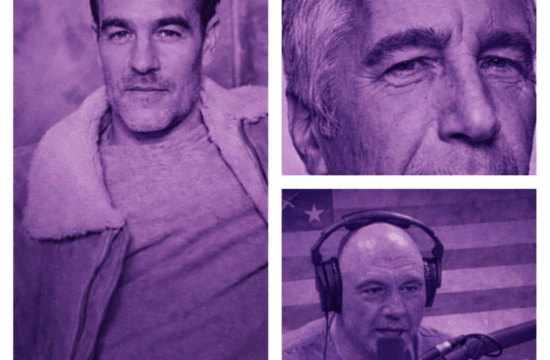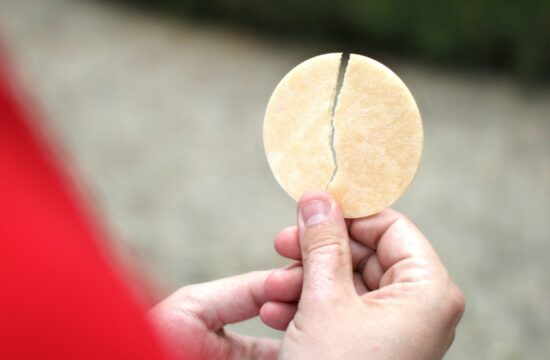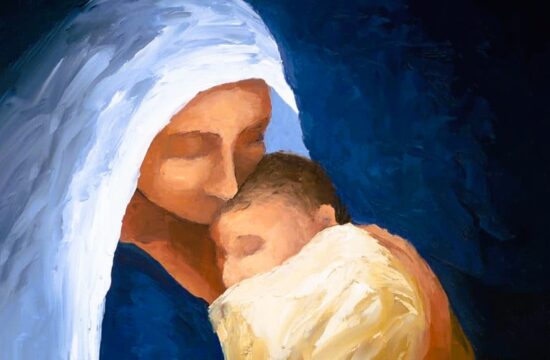If you’ve spent any time online—or just out in public—recently, you might notice something troubling. The shouting isn’t just louder, it’s meaner. Arguments over ideas turn into personal attacks, threats, and humiliation. A recent (Reuters/Ipsos) poll found that nearly two out of three Americans believe that harsh political rhetoric is fueling real acts of violence. And maybe most sobering of all, almost one in five Americans now say that political violence is, at least sometimes, justified. That’s not a small, vocal fringe. Something in the atmosphere is changing: the line between disagreement and outright harm is growing thin. It’s hard not to wonder what’s happened to the moral ground we once stood on.
Thank you for taking the time to read this homily for the feast of the 30th SUNDAY IN ORDINARY TIME (October 26, 2025). Your support means a great deal to me, and I’m deeply grateful for the many who share these messages with their friends, families and social media followers. If you’ve found meaning in these words, I’d be grateful if you’d share them with others who might benefit.
And for those who prefer listening, you can find the audio version on SoundCloud HERE or subscribe to the podcast on iTunes HERE. Your comments, messages, and the way you’ve embraced these homilies continue to inspire me. Sincerely in Christ -Father Ji
Sometimes the headlines reflect this, but sometimes it shows up in those everyday moments that explode online for all to see. Think of the Phillies-Marlins game a few weeks ago, when a father caught a home run ball for his son—the kind of memory you hope for as a parent. Within seconds, this woman stormed over to the man, began berating them, demanding the ball. The father, pressured and embarrassed, finally took the ball from his son’s glove and handed it to her. The video spread online; the internet reacted in typical fashion—picking sides, shaming, dissecting, trying to identify the woman in the story, and really relishing someone else’s worst moment.
Something similar happened at the US Open a couple of years ago: a man, acting on impulse, snatched an autographed hat meant for a young boy, and the world pounced. But this time, the man didn’t disappear. Something different entered the picture. There was a sliver of hope—a path not of pride or retribution, but of actual change. He publicly apologized, admitting it was “a painful but necessary lesson in humility,” and owned up to how pride and selfishness quickly cloud judgment.
Why do stories like this stick with us? Maybe because, if we’re honest, every one of us has played both roles. Sometimes we’re the one who messes up; sometimes, we’re the bystander or part of a virtual mob, quick to shame, quick to compare ourselves and feel—just for a moment—a little better.
It’s almost as if the culture trains us to be spectators and critics. We scroll, we watch, we judge, and if we’re not adding our own comment, we’re at least rating others silently in our heads. And on the other side of the screen, we curate our life to be as presentable as possible, always a little anxious about being misinterpreted, about becoming someone else’s story for the day. No wonder comparison becomes second nature, no wonder judgement is always in the air—even when we wish it weren’t.
This is exactly the ground where Jesus draws our attention in today’s Gospel. Two men come to pray in the temple. The Pharisee stands up front, recounting his spiritual resume—he fasts, tithes, lives an upright life. But listen to how he prays: he’s not so much talking to God as using God as an audience for his own achievements. “I thank you that I’m not like the rest of humanity,” he says, and especially not like “this tax collector.” The tax collector himself, meanwhile, stands off to the side, not even able to look up. His prayer is just: “O God, be merciful to me, a sinner.” No excuses, no explanations, no measuring himself against others. Just honesty, humility, and hope.
What does the Pharisee forget? Maybe he’s been faithful, maybe he’s stayed out of trouble. But has he forgotten those moments when he needed forgiveness, when someone cut him some slack? Has he lost sight of all the quiet gifts that cushioned him from taking another path—all the family, opportunity, and guidance many others never had? When we lose track of our own backstory, pride sneaks in. All our good choices become a point of comparison instead of an occasion for gratitude.
For the initial listeners, it was shocking to hear what comes next. That Jesus says the tax collector—the one everyone else would’ve written off—goes home “justified,” –right with God. Not because his choices don’t matter, not because he can now shrug and go back to old habits, but because humility is the step that lets God’s grace in. And it’s important to remember that Jesus’ isn’t condemning fasting, tithing, or discipline. Lest we try to see this as our way of opting out of fasting, tithing or discipline – Jesus makes it clear in other places how important those spiritual practices are in the life of every disciple The problem is pride—the quiet, creeping sense that we’re owed something, that others are irredeemable, or that our good track record puts us in a different category.
To grasp how radical this is, we need the wisdom of our first reading from Sirach: Think back to those words we heard: “The Lord is a God of justice, who knows no favorites.” God sees every one of us as His creature—no exceptions. That means the person we judge most harshly, the polar opposite, the sorest disappointment, matters just as much to God as the most obvious “saint.” Honestly, sometimes that’s a tough pill to swallow. What if God loves the person who drives you nuts, the classmate or coworker you can’t forgive, the influencer whose posts make you roll your eyes—just as much as He loves the Pope? That’s not just a theological statement; it’s a radical challenge to see the world, and each other, differently.
Sirach goes even further, reminding us that “the prayer of the lowly pierces the clouds.” There’s no special status in God’s eyes, no way to earn your way into His favor, nor to fall so far you can’t call out and be heard. If we’re honest, that’s a terrifying and astonishing hope. As long as we play the comparison game, we will find either pride (“I’m better than them”) or despair (“I can never measure up”). And both are traps. What Jesus wants us to see is that God’s mercy isn’t a limited resource for a select few; it’s an unending well for all who come in truth.
But make no mistake: Jesus isn’t soft-pedaling the cost of real discipleship, either for the Pharisee or the tax collector. He loves both, and calls both to conversion. The tax collector can’t walk away unchanged, expecting nothing more. God’s mercy is given freely, but it’s not cheap grace; it’s the foundation for a new, transformed life. Just as the Pharisee can’t coast on past record and forget that the good he does is only possible because of God’s gifts, not his own achievement.
So what does any of this mean for us—this week, in the lives we actually live? Maybe it starts with letting go of perfection. Very few of us would ever dream of standing up front and bragging like the Pharisee, but sometimes we hide our struggles, or put down others to hide our own insecurity, or pretend we don’t need help. Maybe it’s about taking five minutes at night and doing an examination of conscience and honestly asking ourselves: “Where did I judge instead of listen? Where did I try to look better by making someone else look worse—online or in a group chat or even just in my mind?” Maybe it’s as simple and as hard as praying, “God, show me where I need mercy—and help me give it to others.”
If you look at the saints—real people with real mistakes—you see a pattern. St. Augustine, for example, is famous for his brilliant theology, but his strength came from knowing how deeply he needed God’s mercy. Late in life, he prayed honestly and vulnerably: “I present myself before thy Holy Face, O my Savior, laden with my sins…” But that transformation didn’t happen overnight. Much earlier in his life, he prayed, for example, “Grant me chastity and continence, but not yet.” There’s something comically refreshing about that honesty—a humility that admits his struggle and hesitation without pretense. Holiness isn’t about having it all together right away; it’s about letting God’s grace keep working in us, again and again, through all our imperfect moments.
Imagine if we all tried this. What if, for just one week, our parish became a community where humility came first? Where our friend groups, our families, our feeds were less about comparisons and more about compassion? Anger would lose its edge, judgment would give way to patient hope, and real change could actually start to take root.
That’s how lasting change begins: with one honest, hopeful prayer—“God, be merciful to me, a sinner.” That’s the invitation. That’s the prayer that breaks cycles, heals hearts, and lets the world see a little more of what God hopes for us.
What if that became our rallying cry—not just today, but every day?











